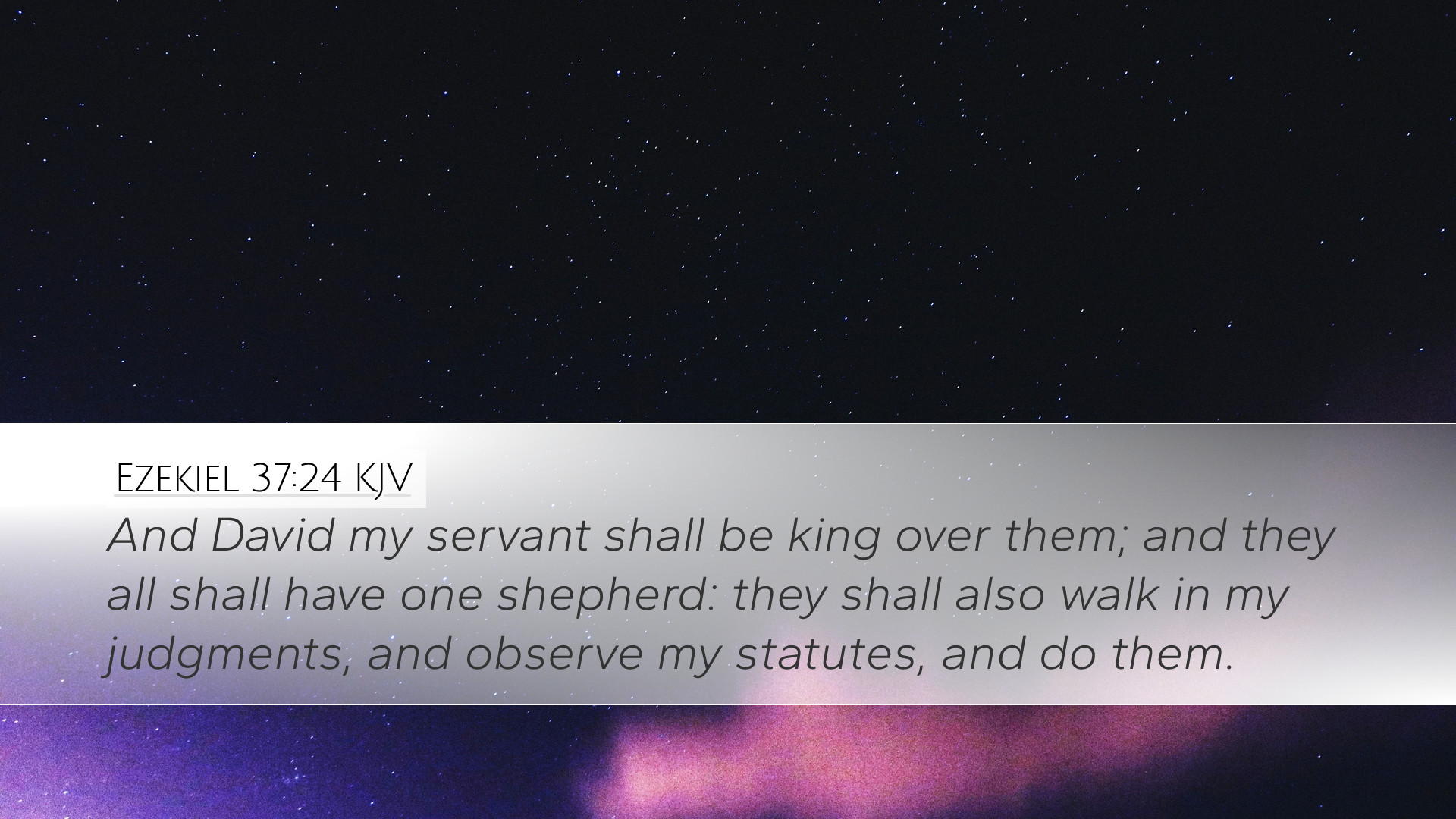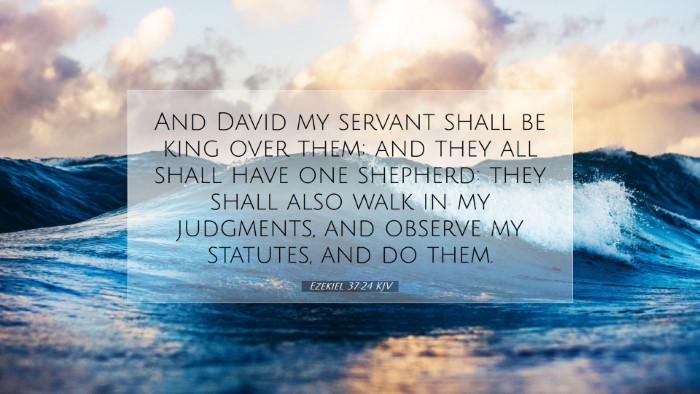Bible Commentary on Ezekiel 37:24
Ezekiel 37:24 states: “And David my servant shall be king over them; and they all shall have one shepherd: they shall also walk in my judgments, and observe my statutes, and do them.” This verse holds profound significance in understanding God's redemptive plan and the future hope for Israel and the Church.
Contextual Overview
This verse is part of the well-known vision of the valley of dry bones, where God revives a nation seemingly lost and dead. In this context, Ezekiel prophesies the restoration of Israel and the unification of God’s people under a godly leader, often interpreted as the Messiah.
The Role of David
Ezekiel mentions “David my servant,” which raises significant theological implications. This reference is not merely about King David's historical role but points towards a future anointed leader from David's lineage who would restore Israel.
- Historical Connection: Matthew Henry emphasizes the importance of David’s covenant with God, which promises the establishment of his kingdom forever. While David faced failures, God’s promise remained steadfast.
- Messianic Interpretation: Albert Barnes highlights that this prophecy is fulfilled in Christ, who is the ultimate descendant of David. Jesus reigns as King and Shepherd, bringing together both Jew and Gentile into one flock.
- Symbol of Unity: Adam Clarke notes that David symbolizes unity among God’s people. The call to have “one shepherd” signifies the end of divisions among tribes and nations, fostering an environment of peace and harmony.
One Shepherd
The concept of “one shepherd” is rich in biblical imagery. It reflects God’s pastoral care over His people.
- Divine Leadership: Matthew Henry illustrates the necessity of divine leadership, emphasizing that a single shepherd serves to guide, protect, and nurture the flock.
- Jesus as the Good Shepherd: In the New Testament, Christ identifies Himself as the Good Shepherd (John 10:11), fulfilling this prophecy through His sacrifice and guidance. Albert Barnes underscores the importance of this shepherd's relationship with His people.
- Unity in Diversity: Clarke points out that while there are various leaders and gifts within the Church, Christ’s leadership ensures that there is one source of guidance and purpose, promoting unity amidst diversity.
Walking in Judgments and Statutes
The verse concludes by stating that God’s people “shall walk in my judgments, and observe my statutes, and do them.” This is an imperative for ethical living and faithful obedience.
- Obedience as a Sign of Restoration: Matthew Henry notes that true restoration involves committing to God's laws and commands. This obedience is not merely ceremonial but a deep, covenantal response to God's grace.
- Transformational Living: Albert Barnes articulates that the heart of the people must be transformed to delight in God’s statutes. This transformation is enabled by God’s Spirit, aligning with the earlier part of Ezekiel where he speaks of God giving a new heart.
- Practical Application: Clarke emphasizes that walking in God's statutes is both a communal and individual responsibility, reflecting one's faith through actions in daily life.
Theological Implications
This verse carries tremendous theological weight not only for the ancient Israelites but also for contemporary faith.
- Hope for Restoration: The promise of revival from desolation offers hope to the oppressed and marginalized. It assures believers of God’s faithfulness to His promises.
- Identity and Belonging: As those brought together under one shepherd, the Church today should reflect unity and love, transcending human divisions.
- Call to Obedience: The call to observe God’s judgments and statutes remains applicable. Believers are encouraged to live out their faith tangibly in a way that advocates for justice and righteousness.
Conclusion
In conclusion, Ezekiel 37:24 provides rich doctrinal insights for pastors, students, theologians, and Bible scholars. It invites believers into a deeper understanding of God's redemptive work through Christ, the unity of the Church under His Lordship, and an unwavering commitment to live according to His commands.


